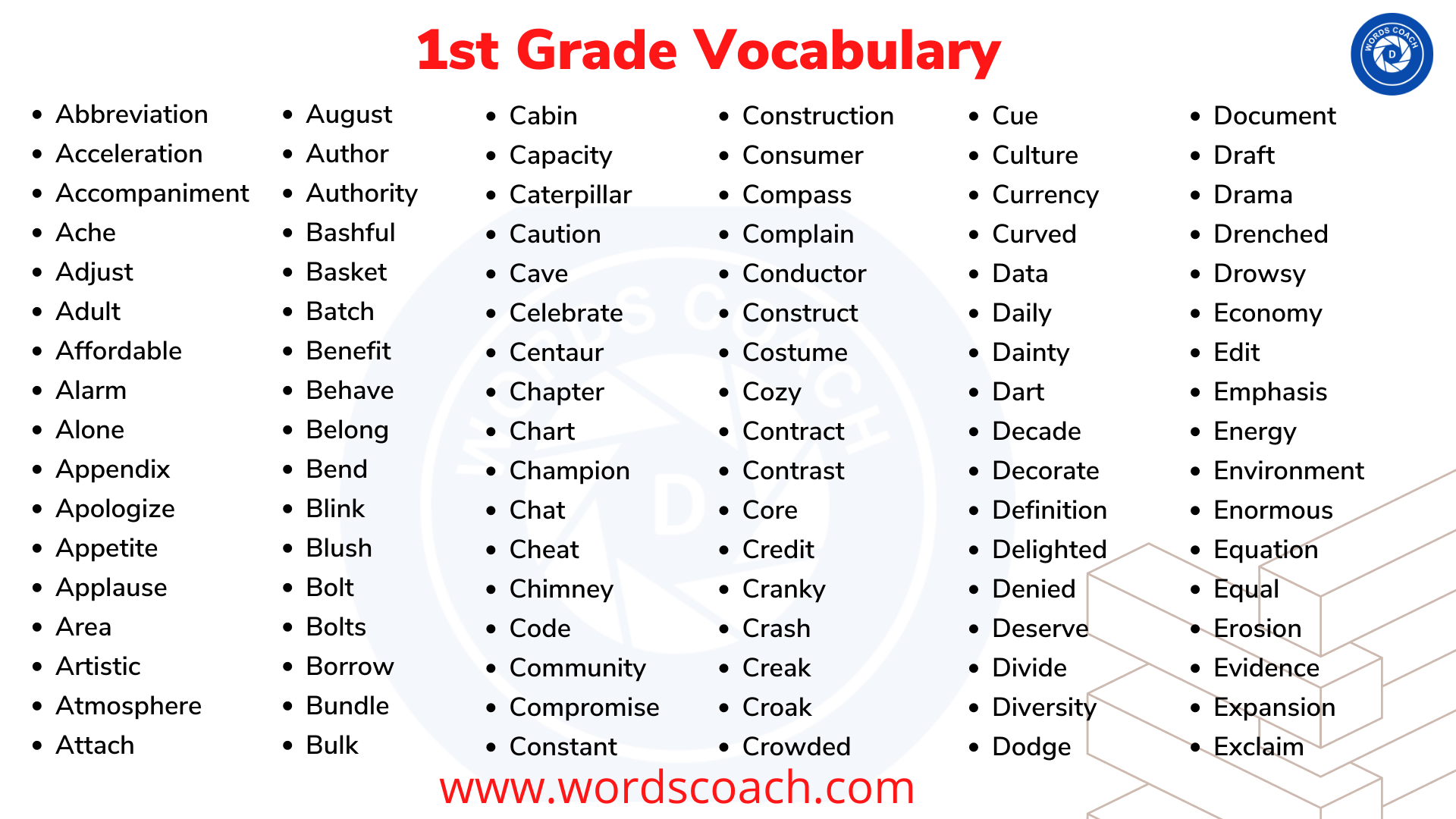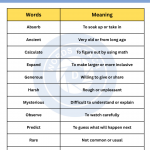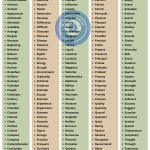Phrasal Verbs to Avoid in IELTS Academic Writing
Phrasal verbs are commonly used in spoken and informal English, but they should be avoided in IELTS Academic Writing. This is because phrasal verbs are often considered too casual for formal writing, and they can sometimes be unclear or ambiguous. For a more formal tone, it’s better to use one-word synonyms or more precise vocabulary.
Here are some phrasal verbs to avoid in IELTS Academic Writing, along with the reasons why and appropriate alternatives.
Phrasal Verbs to Avoid in IELTS Academic Writing (and Why)
Put Off (Postpone)
- Reason to Avoid: “Put off” is informal and conversational. In academic writing, it’s important to use more formal, precise terms.
- Better Alternative: Use “postpone” or “delay” instead.
Example:
Incorrect: The meeting was put off due to the weather.
Correct: The meeting was postponed due to the weather.
Come Up With (Propose or Suggest)
- Reason to Avoid: This phrasal verb is vague and casual, making it unsuitable for formal writing where clarity and formality are required.
- Better Alternative: Use “propose,” “suggest,” or “devise.”
Example:
Incorrect: The researchers came up with a new method.
Correct: The researchers proposed a new method.
Look Into (Investigate or Examine)
- Reason to Avoid: “Look into” sounds conversational, making it inappropriate for academic essays.
- Better Alternative: Use “investigate,” “examine,” or “analyze.”
Example:
Incorrect: The team is looking into the problem.
Correct: The team is investigating the problem.
Give Up (Quit or Surrender)
- Reason to Avoid: “Give up” is often used in everyday speech and lacks the formality needed in academic writing.
- Better Alternative: Use “quit,” “abandon,” or “relinquish.”
Example:
Incorrect: The participants gave up after multiple attempts.
Correct: The participants quit after multiple attempts.
Bring Up (Mention or Raise)
- Reason to Avoid: “Bring up” is commonly used in informal conversation but lacks the sophistication needed for academic writing.
- Better Alternative: Use “mention,” “raise,” or “introduce.”
Example:
Incorrect: The author brings up several key points in the paper.
Correct: The author mentions several key points in the paper.
Get Rid Of (Eliminate)
- Reason to Avoid: “Get rid of” is too colloquial for the formal style expected in IELTS writing tasks.
- Better Alternative: Use “eliminate,” “remove,” or “discard.”
Example:
Incorrect: They got rid of outdated policies.
Correct: They eliminated outdated policies.
Run Into (Encounter or Face)
- Reason to Avoid: “Run into” is informal and casual, often used in speech rather than academic writing.
- Better Alternative: Use “encounter,” “face,” or “confront.”
Example:
Incorrect: The researchers ran into difficulties during the experiment.
Correct: The researchers encountered difficulties during the experiment.
Turn Down (Reject or Decline)
- Reason to Avoid: “Turn down” sounds conversational, and using it in academic writing reduces the level of formality.
- Better Alternative: Use “reject,” “decline,” or “refuse.”
Example:
Incorrect: The committee turned down the proposal.
Correct: The committee rejected the proposal.
Go On (Continue or Proceed)
- Reason to Avoid: “Go on” is informal and commonly used in spoken English. It should be avoided in more formal writing tasks.
- Better Alternative: Use “continue” or “proceed.”
Example:
Incorrect: The experiment went on for several hours.
Correct: The experiment continued for several hours.
Make Up (Create or Invent)
- Reason to Avoid: “Make up” is casual and should be replaced by more formal alternatives in academic contexts.
- Better Alternative: Use “create,” “compose,” or “formulate.”
Example:
Incorrect: The researcher made up a new theory.
Correct: The researcher formulated a new theory.
Set Up (Establish or Arrange)
- Reason to Avoid: Informal and casual.
- Better Alternative: Use “establish” or “arrange.”
Example:
Incorrect: The company set up a new branch.
Correct: The company established a new branch.
End Up (Conclude or Result In)
- Reason to Avoid: Too conversational.
- Better Alternative: Use “conclude” or “result in.”
Example:
Incorrect: They ended up finding a solution.
Correct: They concluded by finding a solution.
Give Up On (Abandon or Stop)
- Reason to Avoid: Informal and vague.
- Better Alternative: Use “abandon” or “cease.”
Example:
Incorrect: They gave up on the project.
Correct: They abandoned the project.
Make Up For (Compensate)
- Reason to Avoid: Informal and casual.
- Better Alternative: Use “compensate for.”
Example:
Incorrect: They made up for their mistake.
Correct: They compensated for their mistake.
Take Up (Begin or Start)
- Reason to Avoid: Casual tone.
- Better Alternative: Use “begin” or “commence.”
Example:
Incorrect: The company took up new research.
Correct: The company began new research.
Bring In (Introduce or Implement)
- Reason to Avoid: Informal phrasing.
- Better Alternative: Use “introduce” or “implement.”
Example:
Incorrect: The government brought in new policies.
Correct: The government introduced new policies.
Look Forward To (Anticipate)
- Reason to Avoid: Conversational, lacks formality.
- Better Alternative: Use “anticipate.”
Example:
Incorrect: We look forward to the results.
Correct: We anticipate the results.
Put Up With (Tolerate)
- Reason to Avoid: Informal and vague.
- Better Alternative: Use “tolerate” or “endure.”
Example:
Incorrect: The team put up with long hours.
Correct: The team tolerated long hours.
Call Off (Cancel)
- Reason to Avoid: Too conversational.
- Better Alternative: Use “cancel” or “terminate.”
Example:
Incorrect: The meeting was called off.
Correct: The meeting was canceled.
Turn Up (Appear or Arrive)
- Reason to Avoid: Informal tone.
- Better Alternative: Use “arrive” or “appear.”
Example:
Incorrect: The participants turned up late.
Correct: The participants arrived late.
Find Out (Discover or Determine)
- Reason to Avoid: Too informal.
- Better Alternative: Use “discover” or “determine.”
Example:
Incorrect: The researchers found out the cause.
Correct: The researchers discovered the cause.
Get By (Manage or Survive)
- Reason to Avoid: Informal and lacks specificity.
- Better Alternative: Use “manage” or “survive.”
Example:
Incorrect: They got by with limited resources.
Correct: They managed with limited resources.
Go Through (Undergo or Experience)
- Reason to Avoid: Casual tone.
- Better Alternative: Use “undergo” or “experience.”
Example:
Incorrect: The company went through major changes.
Correct: The company underwent major changes.
Back Up (Support or Reinforce)
- Reason to Avoid: Informal phrasing.
- Better Alternative: Use “support” or “reinforce.”
Example:
Incorrect: The data backs up the claim.
Correct: The data supports the claim.
Come Across (Encounter or Discover)
- Reason to Avoid: Informal and vague.
- Better Alternative: Use “encounter” or “discover.”
Example:
Incorrect: The researchers came across interesting results.
Correct: The researchers encountered interesting results.
Carry On (Continue)
- Reason to Avoid: Too conversational.
- Better Alternative: Use “continue.”
Example:
Incorrect: The team carried on with the research.
Correct: The team continued with the research.
Deal With (Address or Handle)
- Reason to Avoid: Informal and lacks specificity.
- Better Alternative: Use “address” or “handle.”
Example:
Incorrect: The company dealt with the issue.
Correct: The company addressed the issue.
Look After (Take Care of or Manage)
- Reason to Avoid: Informal tone.
- Better Alternative: Use “manage” or “oversee.”
Example:
Incorrect: She looks after the department.
Correct: She manages the department.
Come Up (Occur or Arise)
- Reason to Avoid: Casual and vague.
- Better Alternative: Use “occur” or “arise.”
Example:
Incorrect: Problems came up during the process.
Correct: Problems arose during the process.
Pass Up (Decline or Miss)
- Reason to Avoid: Informal and unclear.
- Better Alternative: Use “decline” or “miss.”
Example:
Incorrect: He passed up the opportunity.
Correct: He declined the opportunity.
Run Out Of (Deplete or Exhaust)
- Reason to Avoid: Too informal.
- Better Alternative: Use “deplete” or “exhaust.”
Example:
Incorrect: They ran out of resources.
Correct: They depleted their resources.
Look Over (Review or Examine)
- Reason to Avoid: Informal tone.
- Better Alternative: Use “review” or “examine.”
Example:
Incorrect: The professor looked over the documents.
Correct: The professor reviewed the documents.
Keep Up (Maintain)
- Reason to Avoid: Casual phrasing.
- Better Alternative: Use “maintain.”
Example:
Incorrect: He kept up the standard of work.
Correct: He maintained the standard of work.
Point Out (Highlight or Indicate)
- Reason to Avoid: Too conversational.
- Better Alternative: Use “highlight” or “indicate.”
Example:
Incorrect: The report points out the key findings.
Correct: The report highlights the key findings.
Work Out (Solve or Calculate)
- Reason to Avoid: Informal and vague.
- Better Alternative: Use “solve” or “calculate.”
Example:
Incorrect: They worked out the solution.
Correct: They solved the problem.
Break Down (Analyze or Explain)
- Reason to Avoid: Too casual.
- Better Alternative: Use “analyze” or “explain.”
Example:
Incorrect: The essay breaks down the issue.
Correct: The essay analyzes the issue.
Keep On (Continue)
- Reason to Avoid: Informal and conversational.
- Better Alternative: Use “continue.”
Example:
Incorrect: They kept on working through the night.
Correct: They continued working through the night.
Run Across (Discover or Encounter)
- Reason to Avoid: Informal phrasing.
- Better Alternative: Use “discover” or “encounter.”
Example:
Incorrect: They ran across a new theory.
Correct: They discovered a new theory.
Turn Out (Result or Conclude)
- Reason to Avoid: Casual and vague.
- Better Alternative: Use “result” or “conclude.”
Example:
Incorrect: It turned out that the theory was correct.
Correct: It was concluded that the theory was correct.
Step Down (Resign)
- Reason to Avoid: Too informal.
- Better Alternative: Use “resign” or “retire.”
Example:
Incorrect: The CEO stepped down from his position.
Correct: The CEO resigned from his position.
Get Out Of (Avoid or Escape)
- Reason to Avoid: Informal.
- Better Alternative: Use “avoid” or “escape.”
Example:
Incorrect: He got out of doing his duties.
Correct: He avoided doing his duties.
Go After (Pursue)
- Reason to Avoid: Casual phrasing.
- Better Alternative: Use “pursue.”
Example:
Incorrect: The company went after new opportunities.
Correct: The company pursued new opportunities.
Give Off (Emit)
- Reason to Avoid: Too informal.
- Better Alternative: Use “emit.”
Example:
Incorrect: Factories give off harmful gases.
Correct: Factories emit harmful gases.
Hold On To (Retain)
- Reason to Avoid: Informal and vague.
- Better Alternative: Use “retain.”
Example:
Incorrect: The organization held on to its traditions.
Correct: The organization retained its traditions.
Fall Apart (Collapse or Disintegrate)
- Reason to Avoid: Casual and vague.
- Better Alternative: Use “collapse” or “disintegrate.”
Example:
Incorrect: The project fell apart due to a lack of funding.
Correct: The project collapsed due to a lack of funding.
Think Over (Consider)
- Reason to Avoid: Conversational tone.
- Better Alternative: Use “consider.”
Example:
Incorrect: They thought over the proposal.
Correct: They considered the proposal.
Run Into (Encounter)
- Reason to Avoid: Informal and conversational.
- Better Alternative: Use “encounter.”
Example:
Incorrect: The team ran into difficulties.
Correct: The team encountered difficulties.
Call On (Request or Ask)
- Reason to Avoid: Casual tone.
- Better Alternative: Use “request” or “ask.”
Example:
Incorrect: The manager called on the employees to work harder.
Correct: The manager requested that the employees work harder.
Bring Up (Mention)
- Reason to Avoid: Too conversational.
- Better Alternative: Use “mention.”
Example:
Incorrect: He brought up the issue during the meeting.
Correct: He mentioned the issue during the meeting.
Look Into (Investigate or Explore)
- Reason to Avoid: Informal.
- Better Alternative: Use “investigate” or “explore.”
Example:
Incorrect: The team looked into the problem.
Correct: The team investigated the problem.
Get Through (Survive or Complete)
- Reason to Avoid: Too informal.
- Better Alternative: Use “survive” or “complete.”
Example:
Incorrect: They got through the crisis.
Correct: They survived the crisis.
Hold Up (Delay)
- Reason to Avoid: Informal and vague.
- Better Alternative: Use “delay.”
Example:
Incorrect: The project was held up by technical issues.
Correct: The project was delayed by technical issues.
Look Down On (Disdain or Disregard)
- Reason to Avoid: Informal tone.
- Better Alternative: Use “disdain” or “disregard.”
Example:
Incorrect: Some people look down on manual labor.
Correct: Some people disdain manual labor.
Let Down (Disappoint)
- Reason to Avoid: Casual phrasing.
- Better Alternative: Use “disappoint.”
Example:
Incorrect: The decision let down many people.
Correct: The decision disappointed many people.
Run Out (Exhaust)
- Reason to Avoid: Conversational.
- Better Alternative: Use “exhaust.”
Example:
Incorrect: They ran out of resources.
Correct: They exhausted their resources.
Step Up (Increase or Intensify)
- Reason to Avoid: Informal and vague.
- Better Alternative: Use “increase” or “intensify.”
Example:
Incorrect: They stepped up their efforts.
Correct: They increased their efforts.
Make Do With (Accept or Tolerate)
- Reason to Avoid: Casual tone.
- Better Alternative: Use “accept” or “tolerate.”
Example:
Incorrect: The team made do with the available resources.
Correct: The team accepted the available resources.
Set Off (Trigger or Initiate)
- Reason to Avoid: Too conversational.
- Better Alternative: Use “trigger” or “initiate.”
Example:
Incorrect: The decision set off a series of events.
Correct: The decision triggered a series of events.
Put Off (Postpone)
- Reason to Avoid: Informal phrasing.
- Better Alternative: Use “postpone.”
Example:
Incorrect: They put off the meeting until next week.
Correct: They postponed the meeting until next week.
Take Over (Assume Control)
- Reason to Avoid: Too informal.
- Better Alternative: Use “assume control” or “take charge of.”
Example:
Incorrect: A new manager took over the department.
Correct: A new manager assumed control of the department.
Bring About (Cause)
- Reason to Avoid: Casual tone.
- Better Alternative: Use “cause” or “lead to.”
Example:
Incorrect: The policy brought about significant changes.
Correct: The policy caused significant changes.
22. Knock Down (Demolish)
- Reason to Avoid: Informal and vague.
- Better Alternative: Use “demolish.”
Example:
Incorrect: They knocked down the old building.
Correct: They demolished the old building.
Pick Out (Select)
- Reason to Avoid: Informal phrasing.
- Better Alternative: Use “select.”
Example:
Incorrect: The committee picked out the best candidate.
Correct: The committee selected the best candidate.
Back Down (Withdraw or Retreat)
- Reason to Avoid: Casual tone.
- Better Alternative: Use “withdraw” or “retreat.”
Example:
Incorrect: The company backed down from its position.
Correct: The company withdrew from its position.
Get Over (Recover)
- Reason to Avoid: Informal and vague.
- Better Alternative: Use “recover.”
Example:
Incorrect: He got over his illness.
Correct: He recovered from his illness.
Give In (Concede)
- Reason to Avoid: Too conversational.
- Better Alternative: Use “concede.”
Example:
Incorrect: The team gave in to the demands.
Correct: The team conceded to the demands.
Turn Down (Reject)
- Reason to Avoid: Informal.
- Better Alternative: Use “reject.”
Example:
Incorrect: She turned down the job offer.
Correct: She rejected the job offer.
Stand Up For (Defend)
- Reason to Avoid: Too casual.
- Better Alternative: Use “defend.”
Example:
Incorrect: They stood up for their beliefs.
Correct: They defended their beliefs.
Go Along With (Agree)
- Reason to Avoid: Informal and vague.
- Better Alternative: Use “agree” or “concur.”
Example:
Incorrect: He went along with the proposal.
Correct: He agreed with the proposal.
Work On (Improve)
- Reason to Avoid: Too casual.
- Better Alternative: Use “improve” or “enhance.”
Example:
Incorrect: She worked on her writing skills.
Correct: She improved her writing skills.
Why Avoid Phrasal Verbs in IELTS Academic Writing?
Formality: IELTS Academic Writing requires a formal tone. Phrasal verbs are typically too informal and conversational for the level of formality expected in academic essays.
Clarity: Phrasal verbs can be ambiguous or confusing, especially for non-native speakers. Using precise, one-word alternatives improves clarity and professionalism in writing.
Word Choice and Variety: In academic writing, it’s important to demonstrate a wide range of vocabulary. Phrasal verbs often appear as casual or less impressive than their formal counterparts.
How to Improve Your Academic Vocabulary
Read Academic Journals: Regularly reading academic journals and articles helps you familiarize yourself with formal language and advanced vocabulary.
Practice Writing: Rewriting sentences that contain phrasal verbs with their formal equivalents will help you develop a more formal writing style.
Use a Thesaurus: When writing essays, consult a thesaurus to find formal alternatives to common phrasal verbs and improve the sophistication of your language.
While phrasal verbs are useful in spoken and informal contexts, they should be avoided in IELTS Academic Writing to maintain a formal and precise tone. Using appropriate alternatives not only boosts the professionalism of your writing but also enhances your vocabulary range, which is crucial for achieving a high band score. By replacing casual expressions with more formal equivalents, you demonstrate the linguistic sophistication necessary for success in the IELTS exam.





